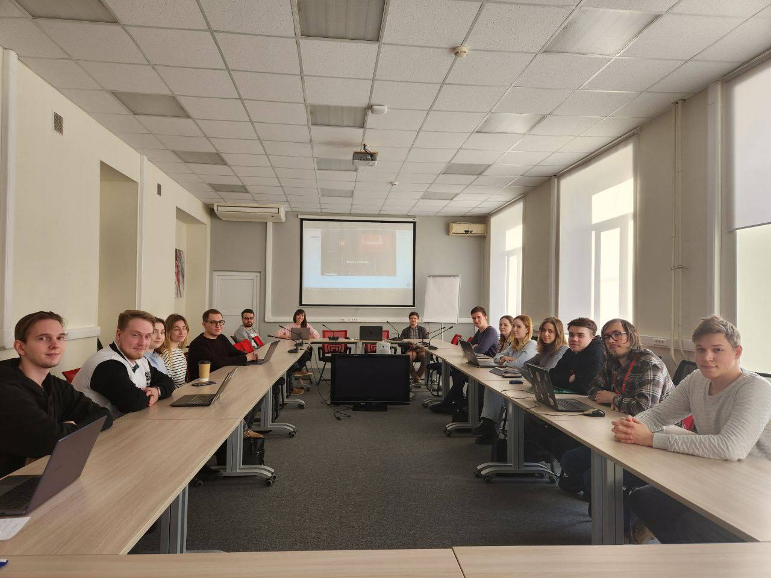
First Caucasus School on Experimental Research and Cognitive Sciences Takes Places in Adygea
On September 17–20, 2025, the First Caucasus School on Experimental Research and Cognitive Sciences took place at the Gornaya Legenda venue of Adyghe State University (ASU). The event was organised by the ASU Experimental Linguistics Laboratory, the HSE Centre for Language and Brain, and the HSE Centre for Sociocultural and Ethnolinguistic Studies. The school brought together over 50 participants—students, doctoral candidates, and early-career researchers from across Russia, along with lecturers and speakers from France, Serbia, China, Turkey, Kazakhstan, and Uzbekistan.

‘I Wanted to Sing, but Was Asked to Organise the Voting System’
The first Intervision song contest recently came to an end in Moscow. The winner was the Vietnamese entrant, Đức Phúc. The voting system for the contest was developed by Fuad Aleskerov, a renowned mathematician, expert in game theory and decision-making, and Distinguished Professor at HSE University. He shared the details with the HSE News Service.

‘Himalaya Calling’: Dean of St Petersburg School of Social Sciences Speaks at Global Summit at UPES
Alexander Sorokin, Dean of the School of Social Sciences at HSE University–St Petersburg, was a key speaker at the Himalaya Calling global summit at UPES University in India.

Parion Mission: Hetaera’s Krater, Ancient Urban Technology, and Digital Archaeology
On September 15–16, 2025, the HSE Centre of Classical and Oriental Archaeology at the Institute for Oriental and Classical Studies, Faculty of Humanities, held an international conference marking the fifth anniversary of excavations carried out by HSE archaeologists as part of the Parion Mission of Ondokuz Mayıs University, Samsun, at the agora of Parion.

Similar Comprehension, Different Reading: How Native Language Affects Reading in English as a Second Language
Researchers from the MECO international project, including experts from the HSE Centre for Language and Brain, have developed a tool for analysing data on English text reading by native speakers of more than 19 languages. In a large-scale experiment involving over 1,200 people, researchers recorded participants’ eye movements as they silently read the same English texts and then assessed their level of comprehension. The results showed that even when comprehension levels were the same, the reading process—such as gaze fixations, rereading, and word skipping—varied depending on the reader's native language and their English proficiency. The study has been published in Studies in Second Language Acquisition.

Mortgage and Demography: HSE Scientists Reveal How Mortgage Debt Shapes Family Priorities
Having a mortgage increases the likelihood that a Russian family will plan to have a child within the next three years by 39 percentage points. This is the conclusion of a study by Prof. Elena Vakulenko and doctoral student Rufina Evgrafova from the HSE Faculty of Economic Sciences. The authors emphasise that this effect is most pronounced among women, people under 36, and those without children. The study findings have been published in Voprosy Ekonomiki.

‘A Space Where You Can Ask Questions and Make Mistakes’
Regular, long-term seminars are an important part of the work of HSE research teams. Petr Parshakov, Professor at the School of Economics and Finance of the Faculty of Computer Science, Economics, and Social Sciences at HSE University–Perm and Head of the International Laboratory of Intangible-Driven Economy, talks about the laboratory’s regular seminars: why such meetings are needed, how they are organised, the secret of successful seminars, and the place seminars hold today in academic life.

Scientists Develop New Method to Detect Motor Disorders Using 3D Objects
Researchers at HSE University have developed a new methodological approach to studying motor planning and execution. By using 3D-printed objects and an infrared tracking system, they demonstrated that the brain initiates the planning process even before movement begins. This approach may eventually aid in the assessment and treatment of patients with neurodegenerative diseases such as Parkinson’s. The paper has been published in Frontiers in Human Neuroscience.
Global AI Trends Discussed at International Foresight Workshop at HSE University
At an international foresight workshop on artificial intelligence held at HSE University, Russian and foreign scholars discussed the trends and challenges arising from the rapid development of AI.
Autism as a Global Challenge: HSE University Brings Together Experts from 15 Countries
Autism spectrum disorders (ASD) pose challenges not only in medicine, but also in education, social policy, and technology. Scientists, doctors, educators, and government representatives have discussed how science and practice can help people with such disorders at the conference ‘Autism. Challenges and Solutions.’ For the first time, the event has been held at HSE University.


Abstracts submission - August 10, 2025